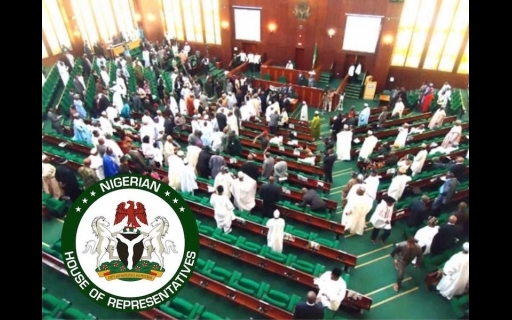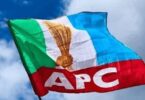House of Representatives, on Monday, flagged off forensic investigation into the alleged production and importation of substandard/ adulterated petroleum products, as well as the non-non-availability of crude oil supply to Dangote and all other domestic refineries.
While delivering the keynote address during the inauguration of the joint Committees on Petroleum Midstream and Downstream, Abuja, Speaker Tajudeen Abbas tasked Nigerian Midstream and Downstream Petroleum Regulatory Authority (NMDPRA) and Standards Organization of Nigeria (SON) on the need to “guarantee that all petrol imported into this country is rigorously tested in laboratories to meet the standard sulphur and octane levels.
Hon. Abbas who was represented by his Deputy, Hon. Benjamin Kalu urged the Committee on the need to stand on the side of Nigerians who are suffering and want results by protecting their interests, rather than the interest of any other parties.
“It is unacceptable that the petrol imported into the country contains high sulphur levels, is led, and has low octane levels – as we notably experienced in recent past that even led to socio-economic losses on a national scale including the knocking down of the engines of vehicles of Nigerians in their hundreds.
“In carbon control economies, maintaining high octane levels is a significant regulatory issue for both energy regulators and environmental protection agencies. The lower the octane level, the cheaper the cost of refining, but this should not be at the expense of quality and environmental standards.”
Speaker Abbas also harped on the need to address the issue of infrastructure for quality assurance that enables robust testing of petroleum products with the standard practice for manual sampling fully adhered to, just as he urged the Committee to carry out investigations on the quality and the number of laboratories that both the NMDPRA and SON have or use for their tests and return with actionable feedback.
In his remarks, Lead Chairman of the joint Committee on Midstream & Downstream, Hon. Ikenga Ugochinyere explained that the Committee was mandated to ‘carry out a legislative forensic investigation into the resurgence of fuel queues in petrol stations, allegations of high cost of PMS, unavailability of fuel stock for downstream domestic refineries, disruption of distribution of PMS products, unfair subsidization of PMS and other petroleum products, racketeering and favouritism in the Pro Forma Invoice System regime.’
While reeling out the joint Committees’ itinerary, Hon. Ugochinyere said: “Our investigation will proceed in phases, beginning with the investigation of allegation of alleged production and importation of Substandard Petroleum Products and the nonavailability of Crude Oil to Domestic Refineries.
“Out of the over 30 identified key items that will undergo our forensic investigation, we are starting with the most current issues and the recent development involving one of the refiners – Dangote Refinery and our regulatory body NMDPRA over quality of produced and imported products and the complaints by all Refining companies in Nigeria over non-availability of Crude Oil supply to all their domestic Refineries.
“This forensic legislative investigation is crucial for restoring trust and ensuring the quality and security of Nigeria’s petroleum sector in line with the FG Renewed Hope Agenda program.
“We are committed to transparency, thoroughness, and accountability throughout this process that will help us to identify and resolve the underlying issues plaguing Nigeria’s petroleum sector.
“To this end, he urged all the stakeholders involved in the current disputes to de-escalate tension as the Committee embarks on the great task of resolving the issues.
“So given the above, the joint committee resolved that both parties in the raging argument; Dangote Refinery, other Refining Companies, NMDPRA, marketers, and relevant stakeholders should henceforth cease further allegations and counter-allegations pending the conclusion and outcome of the investigation.
According to him, some of the stakeholders to be engaged by the joint Committees are: regulatory bodies, State Oil Companies, Petroleum Products Refining Companies, IPMAN, PETROAN, independent oil producers, international oil companies (IOCs), importers, marketers, depot owners, among others.
Hon. Ugochinyere who reiterated the 10th Assembly’s resolve towards ensuring the integrity and security of Nigeria’s petroleum sector, applauded the House leadership for its “desire and unstoppable drive to see a competitive, efficient, transparent and sustainable Midstream and Downstream Petroleum Resources sector that will be the foundation for advanced economic revolution that will help solve our present challenges in line with the Federal Govt Renewed Hope Agenda.”
He pledged the Committee’s resolve towards ending the menace of indiscriminate issuance of licenses and importation of refined petroleum products, alleged return of PMS price intervention, allegation of product unavailability to marketers from NNPC Retail, endless shifting of timelines for refinery rehabilitation, and the nefarious activities at petrol depots.
According to him, the committee will also conduct ‘A legislative forensic investigation into the presence of middlemen in crude trading, indiscriminate issuance of licenses, alleged unavailability of Intl standard laboratories to check adulterated products, influx of contaminated products into the country, the allegation of non-domestication of profits realized from crude marketing sales in local banks, abuse of the PFI regime, importation of products already being produced in Nigeria and use of international trading companies to resell fuel stock to local refineries at high mark up prices.
The joint committees are also posted towards carrying out a legislative forensic investigation into the allegation of importation of substandard products and high-sulphur diesel into Nigeria, the alleged production of substandard diesel and other petroleum products by some domestic producers, alleged anomalies in the importation and distribution of pms by the state oil company, the economic viability of the alleged sale of petroleum products below fair market value and its impact on downstream and local refineries and revenue generation as well as the source of funds for such price interventions, quantity imported, amount spent and why the products are still high in the retailing market, the alleged failure of some of the regulators to enforce compliance on standards; the lack of support to local crude refiners, issuance of import license, despite local production.
He also pledged the Committee’s resolve to ensure “a thorough and transparent investigation, the committee will undertake detailed laboratory investigations at all local refineries, marketers, and Importers facilities, and regulatory agency, State Oil Company and other players in the sector.
“We will visit various filling stations, depots, and tank farms to take samples in line with intl standards, verify the quality of imported products, and asses the testing capacities of all refineries and all refined product handling outfits. The collection of samples will be done transparently and in line with global best practices and will be in 4 specimens for independent testing in a different standard, accredited Laboratory including that of all stakeholders involved in refining and importation of refined petroleum products.
“The committee will select different locations, including filling stations, depots and even currently discharging ships. Samples shall be taken in the presence of Representatives of NMDPRA, refinery representatives, Marketers/Importers, and the Committee. After collection, the samples will be tested jointly and also independently by the committee and the stakeholders to ascertain the contents. Components to be tested for as listed as follows: Sulfur Content, Density, Distillation, Flash Point, Octane number (for gasoline), and Cetane number (for diesel).
He also unveiled the joint Committee plans to inaugurate Zonal interaction Committees to ensure swift movement to different parts of the country to interact with stakeholders and take samples from stakeholders/facilities such as depots, farm tanks, filling stations, and refineries, for immediate laboratory analysis.
ALSO READ THESE TOP STORIES FROM TheWitness







